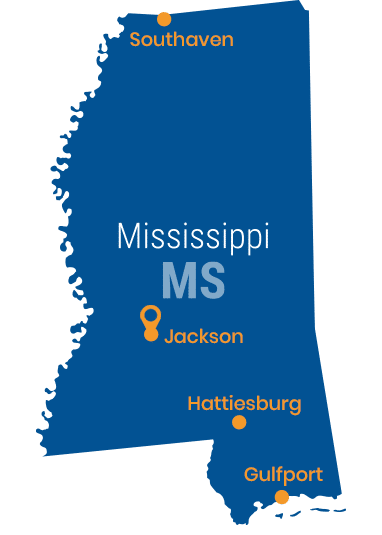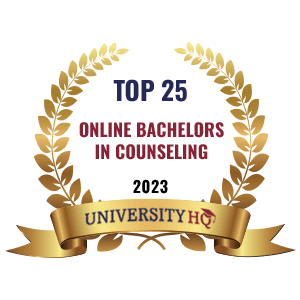What is School Counseling?
Mississippi is well known for its music, food, and coastal beaches, though its economy is one of the few in the United States that is still largely dependent on agriculture. However, Mississippi is barreling into the 21st century with tech and business initiatives and the full economic breakdown of the state reveals a picture of a unique economy.
A school counselor is an educational professional whose job is to help students work through whatever personal issues may be holding them back from success. They must hold a master’s degree and special license to work one-on-one with students in a psychotherapeutic environment. They may also conduct intelligence and other tests to determine students' overall competency with basic academic skills. And school counselors will be there to help students manage traumas, such as the death of a loved one or a tragedy at their or another school.
School counselors naturally find their home in a school where they can interact with students, though some school counselors take their degrees and Mississippi state licensure to work in the private sector. After a significant tenure in a school system, many school counselors enter private practice. They can then practice more intensive therapy or develop a multi-faceted therapy practice.

Featured Online Programs
Online School Counseling Education in Mississippi
The top economic driver in Mississippi is its manufacturing sector, which generates upwards of $19 billion in annual revenues. Manufacturing has long been a key economic support for the state since they first started luring northern industry to the south in the Great Depression. In fact, Mississippi pioneered the state-sponsored economic initiative, and they continue to lure major manufacturers with their low cost of living and business friendly initiatives.
The Mississippi economy is also led by its real estate market, a sector that brings in $12 billion in annual revenues. Its third-place industry is the $10 billion super sector that includes education, healthcare, and social assistance. That major economic driver includes many professions, including school counselors.
Given their importance in this vital industry, Mississippi's legislature strives to support the state's school counselors. They do this by not only ensuring that local school districts are adequately funded with support for school counseling programs, but by supporting the state's higher education system. This includes education and psychology departments in Mississippi's community colleges, four-year universities, and master’s degree programs.
Education and psychology faculty make good use of the state funds and seek out the best academics in the field. Those PhDs allow them to take the helm and teach each school's undergraduate and graduate students. These departments also look for instructors from the local economy who can bring special insights to the classroom.
While most local school counseling professionals work with master’s degrees, they are still able to teach Mississippi undergraduates in their pursuit of a degree. They can not only deliver the textbook and research-backed information, but they also are able to bring special insights to undergraduate students. Since they have experience in the local economy, they can enliven the classroom experience with stories that relate directly to the experience most of their students are sure to have.
School counselors, unlike most other school employees, are required to hold a master’s degree on top of their state licensure. Professionals who have an undergraduate degree may still work in schools as teachers, teacher's aides, administrators, or substitute instructors, but they cannot work as counselors. This means that Mississippi demands a high level of expertise for professionals to work with the state's children. In return, school counselors receive higher pay than those with an undergraduate degree. School counseling is also a highly rewarding career that already offers many intangible rewards.
Online Associates (AS)
A two-year associate counseling degree is a good start for a career, but you aren’t likely to find a degree at this level that is directly focused on school counseling. At this level, most community colleges are likely to offer degrees in early childhood education, psychology, or social work which can help aspiring school counselors with introductory knowledge. Though an associate degree does not qualify for licensure as a school counselor, it can help a graduate start work in the schools as a paraprofessional or to decide if school counseling is for them.
For those who have the long-term goal of a career in school counseling, any early experience in schools, or working with children in general, can be a boon. Those who wish to work with elementary or preschool students can earn a degree in early childhood education and perhaps work with a preschool or even as a teacher's aide in an elementary school. Even working as a front-office administrator can be beneficial to those who aim to work as counselors or teachers. Principals place a high value on any experience working with children in a school setting.
Find Your Online School Counseling Program
Online Bachelors (BS)

A four-year counseling degree will not yet be enough to work as a school’s counselor, but it still offers degree holders opportunities to work in schools. Those who complete a full teacher preparation curriculum may earn their teaching certificate and start their education career in the classroom. Those who study psychology or social work can still work in schools as a teacher's aide, paraprofessional, or substitute teacher. In fact, those who land a long-term substitute position can have a fully immersive experience working with children.
These experiences can be very helpful for those who wish to work as school counselors. Principals like to see experience on top of an impressive academic resume. Further, gaining in-class or in-school experience with an undergraduate degree can more fully inform the students as to the realities of working as an educational professional. Graduate admissions counselors may also smile on an experienced master’s school counseling degree student.
Online Masters (MS)

A master’s school counseling degree is a requirement for all licensed school counselors. To gain admission to a graduate degree program, students must first complete a relevant undergraduate degree; often a degree in psychology or social work will suffice. Master’s degree candidates should also consider gaining some experience in a school setting to support their academic achievements. Schools may also appreciate any other experience working with children such as camp counselor, substitute teacher, or preschool teacher.
Master’s school counseling degree programs are typically geared toward helping students gain licensure. In fact, students should confirm that their desired graduate degree program is aligned with Mississippi's school board and will offer a smooth transition to licensure. It should be noted that many school counselors earn their academic credentials through a Master of Education degree program that features a counseling degree track. There are also dedicated school counseling degree programs available, sometimes from the same institution. In these counseling programs, prospective counselors should learn about mental health counseling, counseling techniques for school aged children, professional licensure, counseling theory, student counseling and student development or adolescent development, counseling services, and gain some experiential learning throughout their core courses. Additionally, when earning a master's degree in counseling through their graduate programs, students should have the option to choose a specialization to support your professional goals. These include clinical mental health counseling, counselor education, vocational rehabilitation counseling, professional counseling, family counseling, etc. After these graduate programs, you should be prepared for licensure as a licensed professional counselor (LPC) or in another similar role and start your counseling practice.
Online Doctorate (PhD)
A PhD in school counseling is a great choice for school counseling professionals, especially those who are looking to advance their careers into private practice or another field, like teaching. School systems pay PhDs more than other degreed professionals and the academic credentials automatically earn the holder an elevated status in their professional community. It does take a bit more time to earn a PhD in school counseling, but the effort can be worth it.
This is because a PhD prepares graduates for more career options. For instance, a PhD holder can teach full- or part-time for a local college, community college, or university. Full-timers can often qualify for a tenure track position and long-term job security. PhDs can also enter private practice, and their credentials will allow them to charge more per hour while enjoying an elevated status in the community. Finally, those PhDs who are still interested in writing and researching may find that publishers are more interested in their manuscripts when they have a doctorate degree to back up their authority.
Become a School Counselor in Mississippi
Mississippi students who are interested in working in the education system have many options. There are careers working with school children that start with bus driver and go all the way to superintendent. Somewhere in the middle are the school counselors who work hard to help students achieve their greatest potential in the classroom and life.
While there are no guarantees when earning a degree, the steps to become a licensed Mississippi school counselor are clear-cut and straightforward. Students should know that they will need a minimum of a master’s degree to qualify for licensure. Prior to that, any aspiring education professional should seek out all possible avenues for gaining experience working with children, ideally in a school setting. This can include summers working as a camp counselor, substitute teaching jobs, or public health instruction.
During the undergraduate years, aspiring counselors should study through related educational programs such as psychology, counseling, or social work. Those intent on counseling school children might also take courses that are usually the domain of education students such as Exceptional Child and Introduction to Education. These courses should serve as good preparation for what's to come.
Find Online School Counseling Programs
In Mississippi, the Board requires a specialist degree in school psychology from a National Association of School Psychologist (NASP) approved degree program. The Board also requires a minimum ACT score of 21, or a passing score on the PRAXIS CORE (Core Academic Skills for Educators) exam. They may also take equivalent SAT scores, but this is not noted in their documentation. Finally, aspiring school counselors must pass the PRAXIS II specialty area test for school psychology.
After completing these requirements, school counseling candidates should seek employment. Once they land a contract with a Mississippi school, they will receive a five-year licensure. During that five-year tenure, all counselors must continue their education to renew their credentials. In Mississippi, they can easily satisfy the Board's requirements with three semester hours in courses that directly relate to school counseling. Alternatively, the Board will also accept five continuing education units (CEUs) in a related area. CEUs can often be satisfied by attending qualified lectures, non-academic (non-credit) seminars, or even by publishing articles. Some students even teach courses and have that experience counted towards their license renewal.
Potential Careers for School Counseling Graduates
- School Counselor
Candidates need a master’s degree and a state license to work as a school counselor. Job duties include conducting counseling sessions with students ranging from elementary through high school years. Some school counselors move between two or more schools during the workweek. - Career Counselor
This counseling position does not involve one-on-one therapy, but career counselors still help students achieve their best life. Most career counselors at the postsecondary level need a master’s degree, but no licensure is required. Much of their work involves arranging career fairs for students and administering vocationally oriented personality profiles with students. - Marriage and Family Therapist
This mental health counseling career focuses on helping married couples and their families achieve clearer communication and a happier existence. Marriage and family therapists often will meet with each member of a couple or family as an individual before conducting a group therapy with everyone. These counselors must be licensed by their state board. - Social Worker
This position doesn't necessarily require any specific post-secondary degree at all. Social workers may check on children who could be in dangerous situations, and some work as caseworkers who help their clients access the resources they need to address whatever issues they face. Many caseworkers are found in their state's Child and Family Services agency where they often conduct site visits to people's homes. - Substance Abuse Counselor
Professionals in this career track can earn a license with academic credentials ranging from a high school diploma through to a doctorate, depending on the state. In Mississippi, you’ll need a bachelor’s or master’s. - Mental Health Counselor
This career path comes with the minimum requirement of a master’s degree in clinical psychology or clinical mental health counseling leading to state licensure. Another approach is a Master of Social Work degree leading to licensure to practice counseling or therapy. Counselors often work in private practice, but many also work for healthcare systems such as a hospital mental ward or a drug and alcohol rehabilitation facility. - School Psychologist
Like school counselors, these professionals work in schools to help students overcome whatever barriers they may have with learning. They may also be called upon to help students through acute traumas, such as the death of a loved one or a tragedy in their school. To earn the specific title of psychologist, professionals need a PhD in school counseling or another form of. Their credentials, including licensure, can help them work in private practice. - Special Education Teacher (SPED)
These educational professionals work with special populations in a school setting. SPED teachers may work with students with profound developmental delays or with exceptionally bright students who have a learning disorder such as dyslexia. Others may specialize in deaf, blind, or speech-impaired students. This position pays more than other teaching positions, but all SPED students need a detailed Individual Education Plan (IEP), which can be a very demanding document to create.
Search All Programs
